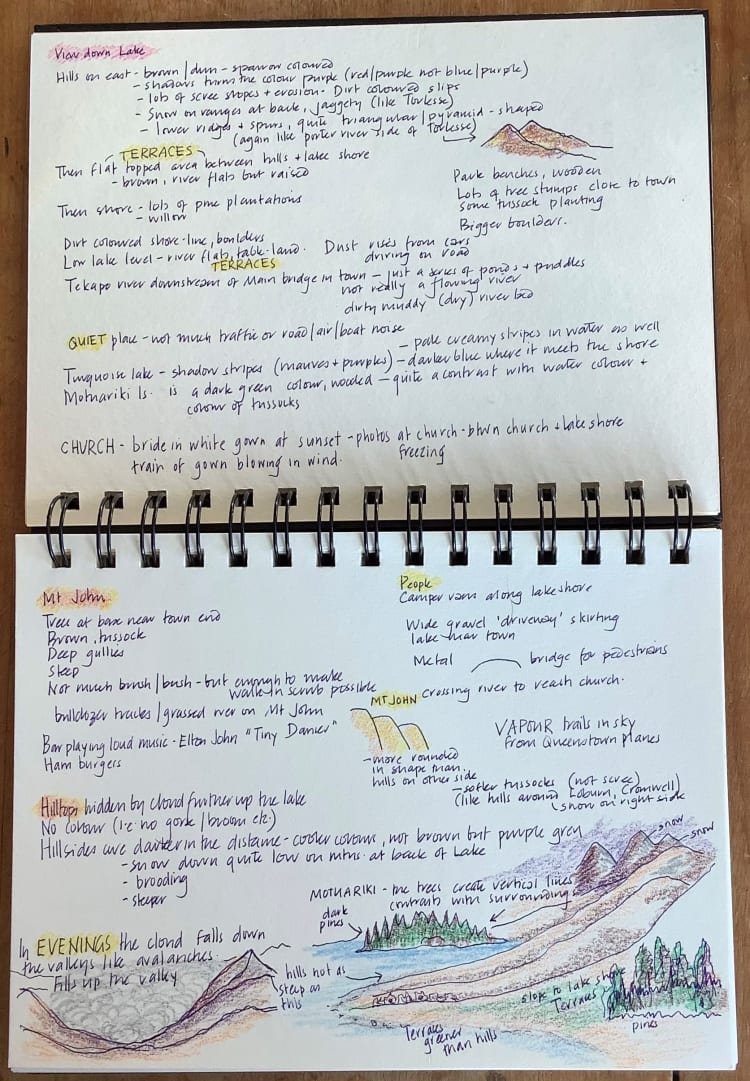
Owen Marshall
Owen Marshall is a living legend of New Zealand literature as a short story master and novelist. The film Coming Home in the Dark is based on a story in his collection The Author’s Cut, published in 2021, and he has included six stories in a 2021 edition of the 1989 classic anthology Six by Six, edited by Bill Manhire.
Read Room
Owen Marshall about a brilliant novel set in Tekapo
Laurence Fearnley’s new novel winter time has two strengths, and the first of these is the setting. Most of the story takes place in Mackenzie Country in the South Island, near the lake and village she calls Matariki, but which are based on a clearly recognizable Tekapo. She has done other work in the region and her loyalty to them is clear.
Her evocation of the snow country is convincing and compelling, drawn from personal experience. Fearnley has spoken of her upbringing in a family of trampers and campers in this country, a love of bird watching and natural vegetation, and her descriptions ring true: “The driveway was only distinguishable from the road because of the gate posts at the end. Otherwise it was a smooth blanket of white, glistening where sunlight caught it. His shoes slid down and made soft, round prints. Snow clung to his socks and the hem of his trousers, building up in a thick layer that stiffened and froze as he walked His tracks weren’t the only ones Some animal, probably a cat, had made a trail through the yard, leaving footprints that disappeared by the hedge and reappeared yards away toward the old barbecue spot. “
Not only is this setting authentic, it reflects the emotional state of the novel’s protagonist, a physical and visual complement to the emotional state experienced by Roland March, the character whose creation is the novel’s second strength. Roland’s winter is not so much a winter of discontent as of sadness, loneliness and unease. Raised in Matariki but never comfortable with the rural lifestyle, he moved to Sydney after an unproductive stint at university, to run a whole food store with his partner Leon.
Accidents haunted his family – his father despised him and abandoned them, his beloved mother died after a long, barbaric illness, his sister Casey died early, brother Isaac went missing, presumably drowned. Further tragedy marks the opening of the novel when Eddie, Roland’s only surviving sibling, and one he loved despite little contact over the years, drowns after losing control of his ute and crashing it into the hydroelectric canal. Roland returns home to solve all problems, including the fate of the family home.
His relationship with Leon deteriorates. Other than Bay, Eddie’s friend, he has little emotional support. Roland’s time in Matariki is made difficult, even threatening, as someone claiming to be him spreads rumors of something suspicious in Eddie’s death and accusations against Roland himself.

Roland is in his homeland, but he had never been comfortable there and all his family is dead. He is alone and his emotional desolation seems reflected in the gloom of the season. A classmate describes him: “You are weak and do not take responsibility for your life because you are afraid of losing what you have. You are afraid of not being loved and you think you are not loved.”
Roland has his virtues. although in many ways he is a sad figure, lacking much charisma and often indecisive. But he is such a well drawn and complex character, with a desire for acceptance and understanding, that our sympathy is involved. It’s a challenge for a female writer to create such a main character, someone who carries so much of the weight of the novel, and Fearnley has done it admirably.
She is an experienced and accomplished writer with a command of language that enables her to cope with the high demands of her highly personal writing. Her skills are well displayed here, especially in her descriptions of the environment and personal relationships. The occasional switch from third-person narration to first-person narration for the same character I found distracting rather than profitable, and I think the novel would benefit from some clarification. The fullness of description and explanation the novel allows is one of its merits, and authentic details rather than generality contribute to a sense of coherence and context in the writing, but momentum is important in long-running works. Fearnley is adept at creating dense prose, so much so that at times it becomes an indulgence and the urgency of the story falters as digression leads to digression and flashbacks increase.
But the novel is a success, mainly because it captures people and places – a place of smells and colors, heat and cold, wind, trees and birds, sounds, rocks and water, the homes of the people who live there: time of year the last evening sun lacked any hint of warmth The sunset was not colored golden or pink, but rather a cold violet that turned greenish yellow before fading to blue-grey The color drew from the sky, the hills around the lake fell in the shadows, but then, as if to reward the beholder, a thin ray of sun sparked on the slopes for a few short minutes.”
winter time is meaningful and challenging, with many unresolved ones. It is a brave story and well told. There is a sincerity in all of Laurence Fearnley’s work that gives it a special weight and character.
winter time by Laurence Fearnley (Penguin Random House, $36) is available in bookstores nationwide.
